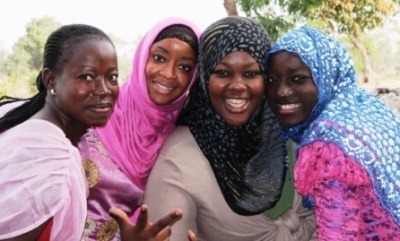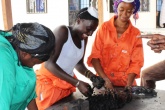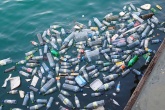WasteAid wins funding for plastics recycling project in The Gambia
Waste management charity WasteAid UK will run a two-year plastic recycling project in The Gambia with government funding from UK Aid Direct.

WasteAid has been working In The Gambia since 2015, undertaking the country’s first ever waste composition analysis, creating a waste innovation centre in the western city of Brikama to train people in four new recycling technologies, and setting up recycling centres in 27 communities across the country. So far, 223 people have been trained and an estimated 45,000 people positively impacted by the project. In recognition of this work, WasteAid won a National Energy Globe Award in 2016.
This year, the charity was also recognised by the International Solid Waste Association (ISWA) for its ‘Making waste work’ toolkit, developed in partnership with the Chartered Institution of Wastes Management (CIWM) to provide simple information on community-led waste management.
Now, the organisation will be further developing its projects in The Gambia with the help of a grant from the UK Aid Small Charities Challenge Fund, which is funded by the UK Department for International Development (DFID).
The funding for WasteAid will run until 2020 and will go towards a project to capture plastic waste in the coastal town of Gunjur, where people currently have no option but to burn or dump their waste. Waste Aid states that plastic waste is regularly burned for cooking fuel, which can create toxic black smoke, while littered waste ends up in the natural environment where it can be eaten by livestock.
Read more: WasteAid UK – Helping communities tackle the waste crisis in West Africa
The Gambian Trust Agency for Rural Development (TARUD) is currently building a workshop to act as a training centre for plastic waste reprocessing, to be run by local TARUD members. Working with WasteAid’s project partner, Women’s Initiative The Gambia, training in plastics recycling will be offered for women, young people and people with disabilities.
Specifically, they will be trained in the process of converting plastic waste into low-cost, durable paving tiles, a product first developed in Cameroon that WasteAid hopes will catch on nationally.

Mike Webster, WasteAid’s CEO, commented: “Helping communities manage their plastic waste has never been more important. We’re delighted to have the support of UK Aid Direct to develop simple waste management and plastics recycling skills in The Gambia. WasteAid will be training a coastal community in plastics recycling, creating green jobs and making useful products. We will also be training local trainers, so they can spread waste management and recycling skills around the country.”







